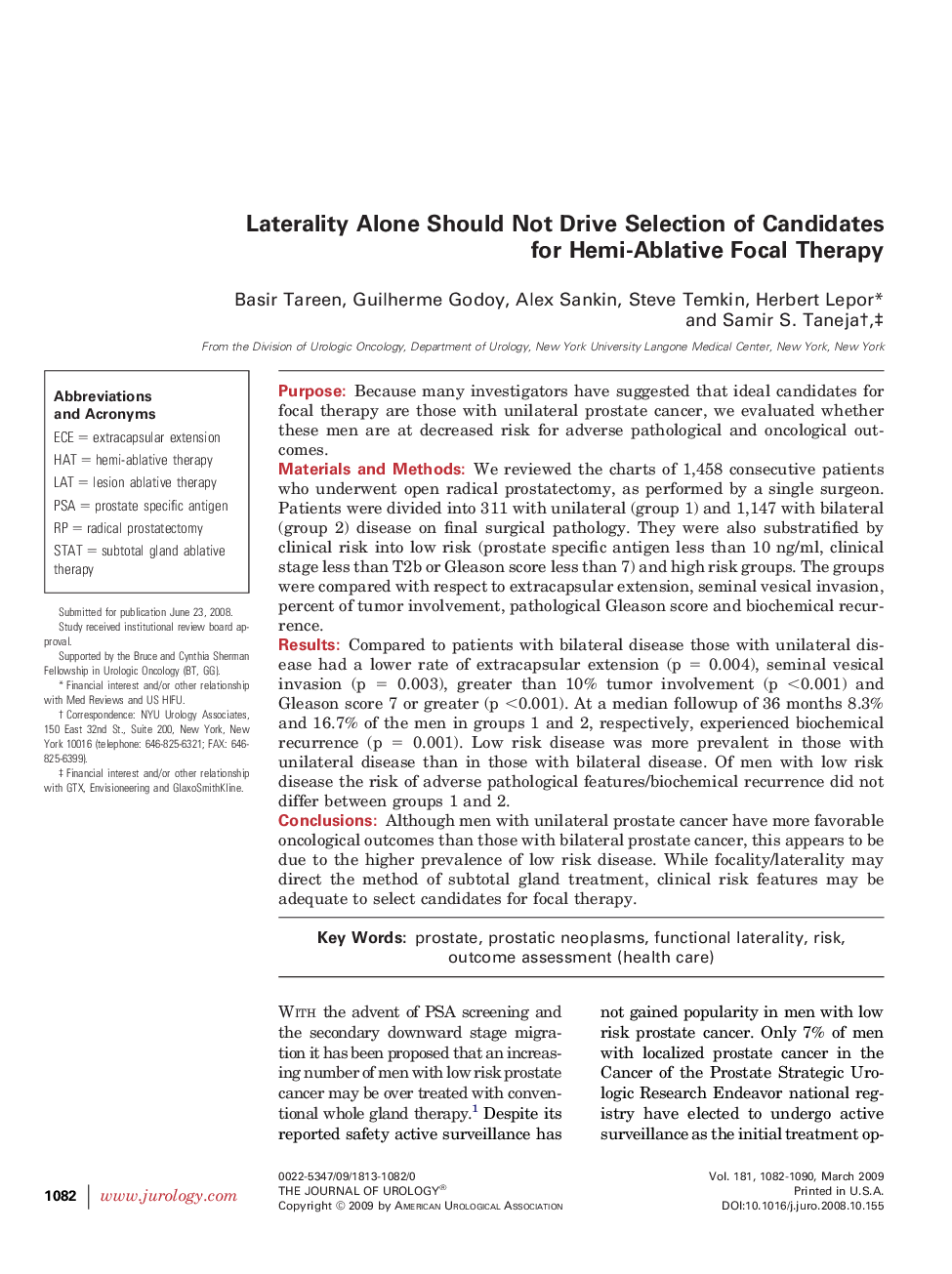| Article ID | Journal | Published Year | Pages | File Type |
|---|---|---|---|---|
| 3870541 | The Journal of Urology | 2009 | 9 Pages |
PurposeBecause many investigators have suggested that ideal candidates for focal therapy are those with unilateral prostate cancer, we evaluated whether these men are at decreased risk for adverse pathological and oncological outcomes.Materials and MethodsWe reviewed the charts of 1,458 consecutive patients who underwent open radical prostatectomy, as performed by a single surgeon. Patients were divided into 311 with unilateral (group 1) and 1,147 with bilateral (group 2) disease on final surgical pathology. They were also substratified by clinical risk into low risk (prostate specific antigen less than 10 ng/ml, clinical stage less than T2b or Gleason score less than 7) and high risk groups. The groups were compared with respect to extracapsular extension, seminal vesical invasion, percent of tumor involvement, pathological Gleason score and biochemical recurrence.ResultsCompared to patients with bilateral disease those with unilateral disease had a lower rate of extracapsular extension (p = 0.004), seminal vesical invasion (p = 0.003), greater than 10% tumor involvement (p <0.001) and Gleason score 7 or greater (p <0.001). At a median followup of 36 months 8.3% and 16.7% of the men in groups 1 and 2, respectively, experienced biochemical recurrence (p = 0.001). Low risk disease was more prevalent in those with unilateral disease than in those with bilateral disease. Of men with low risk disease the risk of adverse pathological features/biochemical recurrence did not differ between groups 1 and 2.ConclusionsAlthough men with unilateral prostate cancer have more favorable oncological outcomes than those with bilateral prostate cancer, this appears to be due to the higher prevalence of low risk disease. While focality/laterality may direct the method of subtotal gland treatment, clinical risk features may be adequate to select candidates for focal therapy.
